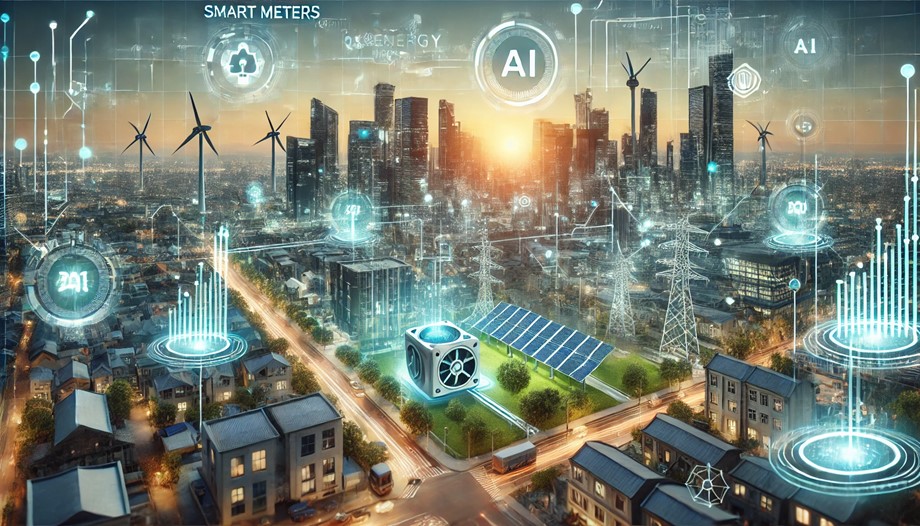With the growing global demand for electricity, modern power systems face unprecedented challenges in ensuring efficiency, reliability and sustainability. Traditional grids struggle with fluctuations in energy management, increased security concerns, and inefficiencies in energy management.
To address these issues, artificial intelligence (AI) has emerged as a crucial technology in the evolution of smart grids. Recent research, “The role of artificial intelligence in smart grids – a mini review,” M. balamurugan, Kamala Narayanan, N. Published in the frontier of artificial intelligence by Raghu, GB Arjun Kumar and VN Trupti, Vn Trupti explores AI-driven strategies to optimize energy production, transmission and consumption. This study highlights the transformative role of AI in enhancing grid intelligence, self-healing capabilities, and demand response mechanisms.
AI-driven efficiency and reliability in smart grids
Integration into AI smart grid systems is revolutionizing energy management by leveraging machine learning and deep learning models to improve load prediction, optimize power distribution, and ensure real-time fault detection. This study highlights how AI enhances smart grids by reducing human interventions and enabling automation. AI-driven smart meters, predictive maintenance algorithms, and intelligent demand response systems allow energy providers to predict consumption patterns and optimize power delivery. Furthermore, AI-based predictive analytics can reduce the risk of power outages by preemptively identifying vulnerabilities in the grid infrastructure.
The study also highlights the role of AI in incorporating renewable energy sources such as solar and wind into the grid. By analyzing trends in weather forecasts and energy demand, AI can ensure better integration of variable energy sources, improve sustainability, and reduce dependence on fossil fuels. Additionally, an AI-powered energy storage management system optimizes the use of stored electricity, reduces waste, and improves grid stability.
AI’s contribution to grid security and data management
Smart grids rely on huge amounts of data from sensors, meters and distributed energy resources, making effective data management important. AI technologies such as deep reinforcement learning and natural language processing enable real-time anomaly detection and cyber threat prevention. This study highlights the importance of AI in identifying malicious activities, such as false data injection attacks that could undermine grid security. AI-driven algorithms enhance cybersecurity measurements by continuously monitoring grid activity, identifying irregular patterns, and responding to threats before escalating.
Additionally, AI improves grid interoperability by enabling seamless communication between different grid components. Smart grids operate through interconnected networks, and AI promotes the integration of diverse energy assets while ensuring efficient energy flow. Advanced AI algorithms work with high accuracy and large datasets, improving real-time decision-making capabilities and reducing operational inefficiencies.
AI challenges and future outlook in smart grids
Despite many benefits, integrating AI into smart grids has challenges. This study identifies key obstacles, such as data accessibility, interoperability issues, and the need for a standardized AI framework. While reliable, high quality data is essential to effectively train AI models, discrepancies in data availability across different energy infrastructures pose hurdles. Furthermore, AI-driven systems require a robust adjustment framework to ensure fair and transparent grid management.
Future, this study envisions a future in which AI-powered smart grids can become completely autonomous, self-regulation, and dynamically adapt to changing energy demands. Continuing advances in AI will enhance decentralized grid operations and increase consumer control over peer-to-peer energy trading and energy consumption. Maximizing the possibilities of AI in smart grids, policymakers, energy providers, and researchers requires collaboration to develop ethical AI governance models that prioritize efficiency, security, and sustainability There is.
Conclusion
The application of AI in smart grid systems is shaping the future of energy distribution by making the grid more intelligent, efficient and resilient. Research by Balamurugan et al. It provides valuable insights into how AI-driven innovation revolutionizes energy management, strengthens grid security and improves sustainability. As the world is digitalized and moved towards a decentralized energy ecosystem, AI will play a key role in ensuring that smart grids meet future energy needs while minimizing environmental impacts. I’ll continue to do it. With continuous research and technological advances, smart grids with AI could become the backbone of sustainable and efficient energy infrastructure.



